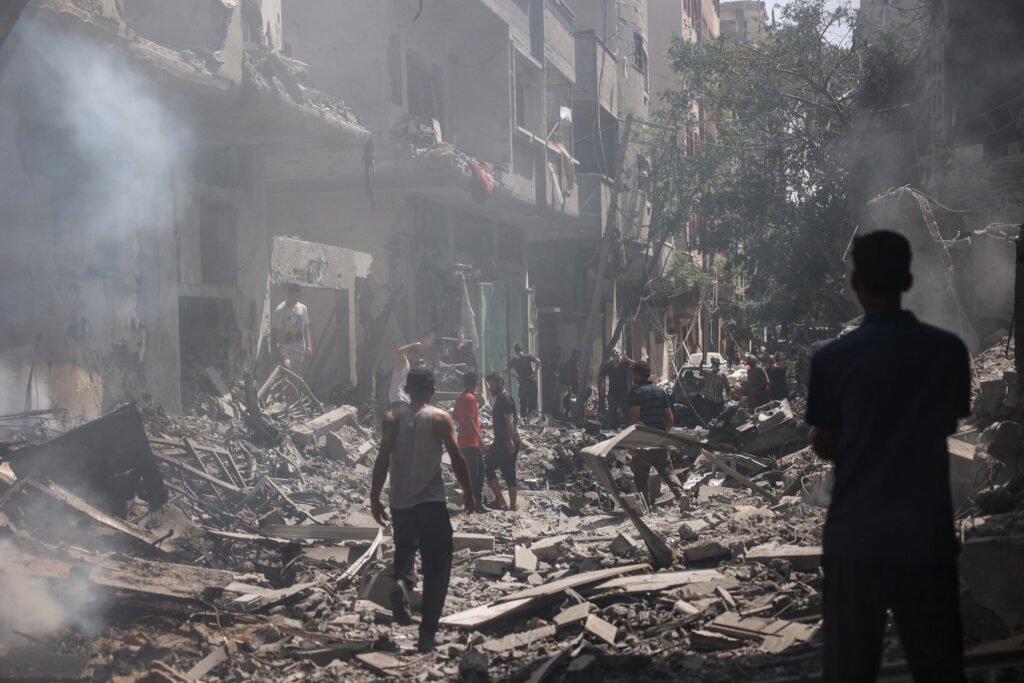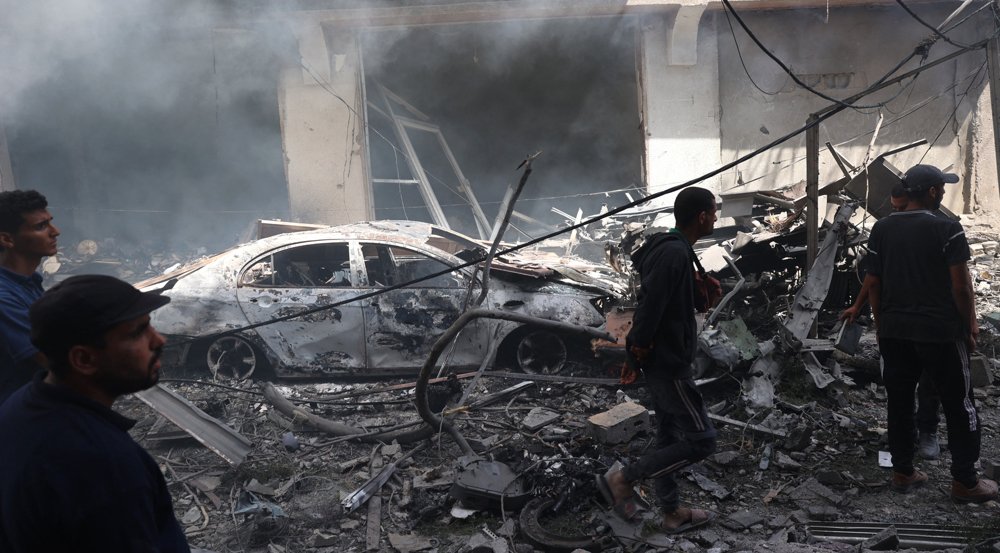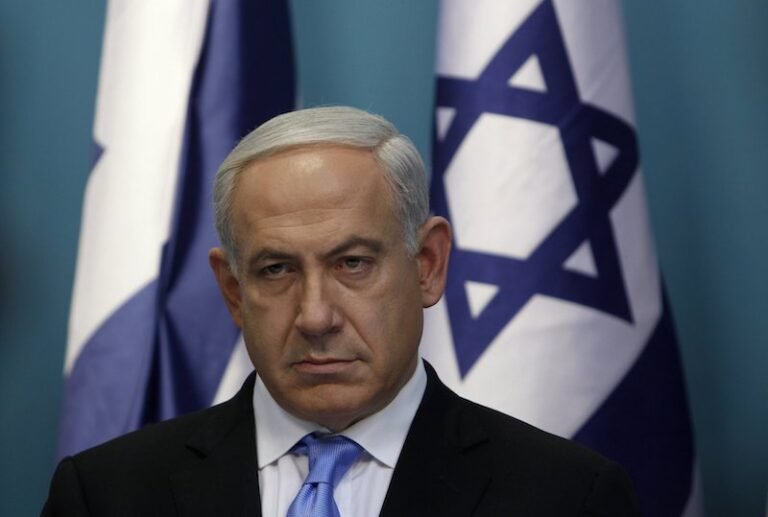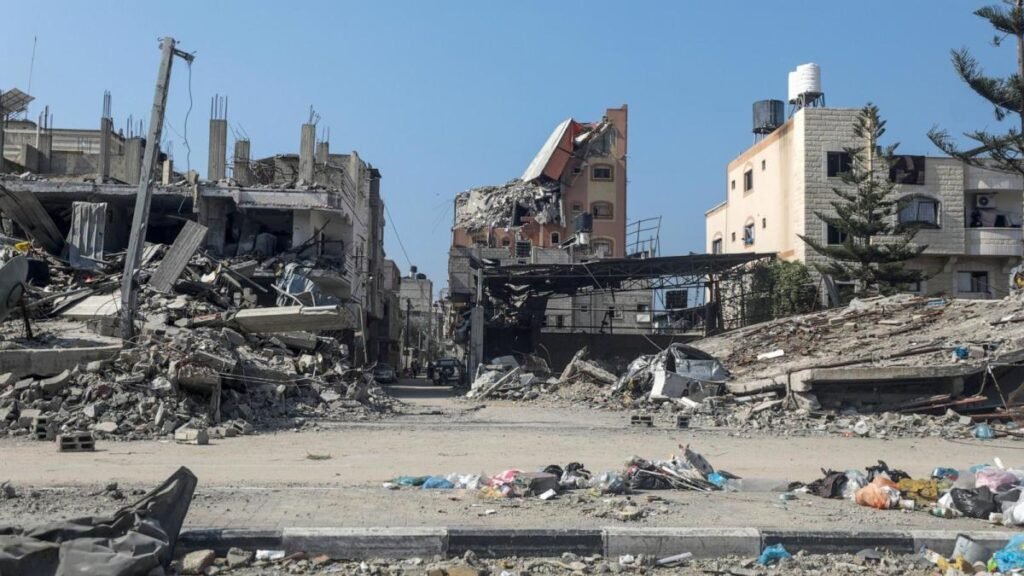Gaza’s Unyielding Tragedy: A Humanitarian Catastrophe Ignored by the West
In a scene that continues to shock the global community, Israeli forces carried out one of their most brutal operations in Gaza, striking the Nuseirat refugee camp. At least 275 Palestinians, including scores of children and women, were killed, with over seven hundred others injured. Streets filled with the lifeless bodies of families, including children torn apart, while survivors tried to pull loved ones from rubble, and doctors were overwhelmed by what has been described as a “nightmare of chaos” in local hospitals.
This assault is part of Israel’s sweeping campaign across Gaza, with the stated aim of targeting Hamas but resulting in relentless civilian casualties. In Nuseirat, which had been deemed a “safe zone,” families now mourn in devastated streets, grappling with an unimaginable loss.

As rescue workers faced continued bombardment, disturbing accounts surfaced of dogs scavenging remains, further highlighting the grim reality of Gaza’s humanitarian crisis.
The High Cost of “Hostage Rescues”
The Nuseirat operation was not simply a military strike; it was also part of an Israeli mission to retrieve four Israeli hostages. Reports suggest that US intelligence and possibly military forces coordinated with the IDF in the raid, drawing sharp criticism from international humanitarian groups. According to eyewitnesses, Israeli special forces reportedly entered Nuseirat disguised as aid workers, a tactic that Palestinians argue breaches international law and ethics, given the camp’s status as a humanitarian zone.

The operation’s toll on civilian lives has sparked global condemnation. While the retrieval of the hostages was celebrated within Israel, where celebratory scenes were captured on Tel Aviv’s beaches, the civilian massacre in Gaza was scarcely mentioned. US media coverage portrayed the operation as a victory, relegating Palestinian casualties to footnotes or, in some cases, justifying civilian deaths as collateral damage in the pursuit of security.
Western Media and Political Silence on Palestinian Lives
The celebration surrounding the hostages’ return has shone a harsh light on Western attitudes toward Palestinian suffering. Prominent Western commentators have framed the event as an essential step in securing Israeli safety, with MSNBC’s Donny Deutsch arguing that some Palestinians might not count as civilians due to their assumed allegiance to Hamas. This rhetoric has led to an uncomfortable juxtaposition: as the world mourns four hostages’ suffering, little attention is given to the thousands of Palestinians, especially children, killed and maimed.
Analysts and human rights advocates alike question the justification of such tactics. Palestinian rights groups argue that a mass bombing campaign aimed at saving hostages reflects an indifference to Palestinian lives, suggesting a troubling dehumanization. This moral imbalance — that some lives seem to matter less than others — is central to the criticism mounting against Western governments, especially the Biden administration, which has provided unflinching support for Israel’s military campaign.

Hostages as Political Tools
Prime Minister Benjamin Netanyahu’s administration has framed the campaign in Gaza as a necessary measure to destroy Hamas, but critics contend that the hostages themselves have become instruments in Israel’s larger geopolitical strategy. Netanyahu’s insistence on continuing the campaign despite heavy civilian losses is seen by many as part of a broader agenda that disregards the safety of both hostages and Palestinian civilians. Palestinian activists note that hostages’ families within Israel are vocal in their opposition to Netanyahu’s approach, demanding a ceasefire and negotiations rather than continued violence that places lives at risk.
The toll in Gaza, which has created a population of displaced, wounded, and grieving people, is unlikely to ease as long as military objectives remain prioritized over humanitarian concerns.
Netanyahu’s government, supported by far-right elements calling for a complete reordering of Palestinian territories, shows little sign of yielding to calls for restraint.
The Global Demand for Justice and Accountability
The devastation in Gaza has reignited calls for accountability worldwide. On Saturday, mass protests erupted in cities across the globe, including Washington, D.C., where thousands marched on the White House demanding an immediate ceasefire and sanctions against Israel. Leaders from Europe, while condemning the humanitarian toll, have largely refrained from concrete actions, such as halting arms sales or imposing diplomatic penalties.
Despite pleas for intervention, the UN’s efforts to curb the violence have been ineffective, with resolutions stymied by geopolitical interests. Meanwhile, public pressure has mounted in the West, where citizens are increasingly skeptical of their governments’ support for Israel’s actions, questioning the ethics of unconditional support in the face of ongoing civilian massacres.
Human Rights Beyond Borders
This latest chapter in Gaza’s long history of suffering reveals the urgent need for a redefined approach to international intervention, one that values all human lives equally. The Nuseirat massacre has exposed the deep-rooted biases in international policy, where some tragedies are mourned, and others ignored. In an increasingly interconnected world, there is a growing demand for governments to address these injustices transparently and humanely.
For the people of Gaza, and for all who believe in the principles of human rights, the path forward must involve a concerted, global call for an end to the suffering inflicted on innocent civilians. The voices demanding justice echo louder with each day that passes without meaningful action. If there is to be any lasting peace, it must be founded on a genuine recognition of all lives’ inherent value, transcending political divides and enshrining compassion over conflict.


